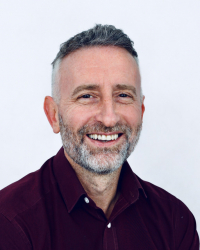Omnipotence: the hidden danger
The purpose of this article is to try and bring the concept of omnipotence to a wider audience. I hope by increasing peoples’ awareness it might help them recognise the hidden dangers that it can present both within themselves and in their relationships.
So what is omnipotence? Generally, when I mention the word, the majority of people look at me, a little blank, and then ask me what it means. The dictionary definition for omnipotence is:
‘Almighty or infinite in power, as God’ or ‘having very great or unlimited authority or power’.
You would not be wrong to ask; how does this god like quality/trait affect me? Put simply it affects us in all manner of ways. Below are a number of common scenarios; this list is not exhaustive and this phenomenon will present itself in different ways depending on the individual:
- Assuming possession of a loved one. Feeling that you have a divine right over them. Expecting them to be ready to meet your needs, especially at your request!
- Feeling that you need no one and that you can do everything yourself. Overly self-reliant and not able to ask for help.
- Imagining that you can cure and find the answer to every problem. This is particularly prevalent in health professionals who potentially can fall into the trap of thinking that they can fix every client and provide an intervention or answer to every problem.
- Creating daily lists or routines that have to be completed at all costs.
- The need to clean or keep order to a degree that you become obsessive and frozen with intrusive thoughts and guilt.
- Not able to address conflict situations or speak your mind, as you feel that the outcome would be catastrophic, either to you or the person/people you are dealing with.
- Finally, the need for perfection at all situations!
The next question that might arise is what purpose does omnipotence serve? Basically, it helps people defend themselves against a variety of intense feelings/emotions that are too painful to be experienced. These feelings are usually rooted in infancy and are raw.
Donald Winnicott was one of the first to write about this concept. He proposed that a baby has to experience healthy omnipotence. This manifests itself when a baby has a sensation of feeling hungry, which at the corresponding time is met by the mother (breast/bottle). According to Winnicott, the outcome of this sensation/need being met by the mother, at the correct time, gives the baby the feeling that they have the power. According to Winnicott children need a significant period of feeling omnipotent. If not, the result is that it continues to rumble on into adulthood. The main aim being to defend us against the loss of not having enough omnipotence in the first place.
Thus, how can we meet the needs of this omnipotent part of ourselves in a healthy way? This is where the psychological gym/therapy is crucial. Therapy provides a safe space where omnipotence can be viewed and understood in the context of the individuals circumstances and personal history. The hope being, that a person might then be able to develop more of an awareness of this dynamic and free themselves of the hidden dangers that it presents.

Find the right counsellor or therapist for you
All therapists are verified professionals
